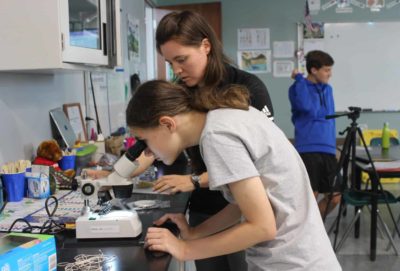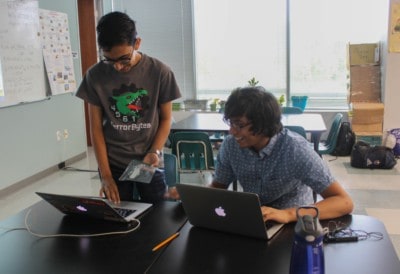

The relationships in our lives — with friends, partners, family, or coworkers — have a huge impact on the five inches between our ears: our confidence, happiness, and well-being. That’s all the more reason to invest in positive, healthy relationships that bring us confidence and allow us to be our best version of ourselves.
As a digital native and social media expert who now works with students across the country, I respect how social media and technology are now woven into the fabric of students’ social lives and relationships. We keep up with friends through texts and DMs, flirt with a crush or partner by sending a witty text, and Slack our co-workers when we want to grab lunch.
Social media is simply how we’re social.
As parents and educators, we all want our children to best navigate this “social” world with respect and high character. It’s how we approach empowering them that makes all the difference. Rather than lecture your child(ren) reactively, proactively empower them to make positive choices in real-life situations.
This month, consider challenging your child to “level up” and consider how they would build healthy relationships through social media and technology. Here are three “social sprints” from our social media curriculum, created by and for students. Huddle with the kids in your life by asking them these real-world questions.
Level 1: Diffusing online gossip, rumors, and trash talk
Imagine you’re in a group chat with some friends and people start talking about a classmate not in the group chat. The messages start to get pretty mean and out of hand. What do you do?
Maybe you would ignore it, tell your friends to stop, change the subject, or even leave the chat.
The average person spends 52 minutes each day gossiping, and eight minutes of that is negative gossip, according to a study by the University of California–Riverside. So much gossip can happen when people are behind their phones. Remind your child that if they see another student bad-mouthing another person, they can always reverse online gossip by responding to that negative text with a positive one.
Level 2: Expressing thanks online purposefully and thoughtfully
Think of all of the people you interact with each and every week. When are three moments throughout your week that you could express gratitude to others?
Technology doesn’t just promote online gossip. It also enables gratitude.
According to research from The University of Texas at Austin, recipients of thank-you notes feel much more “ecstatic” than the writers had initially expected. A thank-you could come in the form of a simple email, a short but surprisingly thoughtful text, a happy birthday post on Instagram, or a handwritten letter. Let’s use technology to spark good in the world. Brighten someone’s day by simply thanking them.
Level 3: Upholding healthy digital boundaries in romantic relationships
A study published in the Psychology of Popular Media Culture found that “excessive” social media PDA is associated with lower relationship satisfaction, but every relationship is unique and all about getting on the same page. What factor do you believe is most important to a happy relationship? (No wrong answers here, so go with your gut!)
- Having time with each other when you’re not distracted by devices.
- Deciding when and how much to post photos of yourselves as a couple on social media.
- Talking through whether or not to engage with your ex’s posts.
- Sharing preferences for resolving disagreements: in person, via FaceTime, or over text.
Technology can make us more connected than ever, but without clear boundaries, it can also distance us from the ones we love the most. Make sure you know which of these answers your loved one, crush, or partner would choose and openly talk with them about why they feel that way.
Social media has become one of the biggest drivers of our kids’ social development. With training, ongoing conversations, and support from parents and teachers, kids can make connections and improve relationships — one post, like, and comment at a time.




